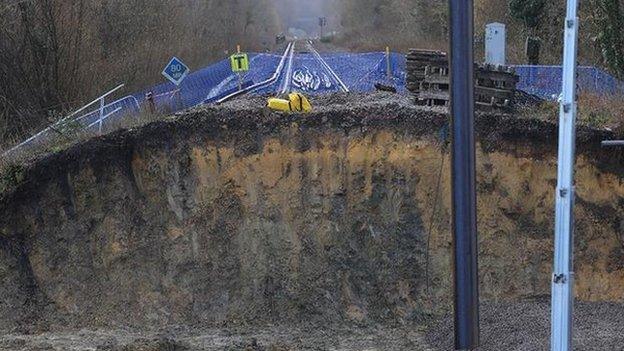South Western Railway services delayed after Hedge End landslip
- Published
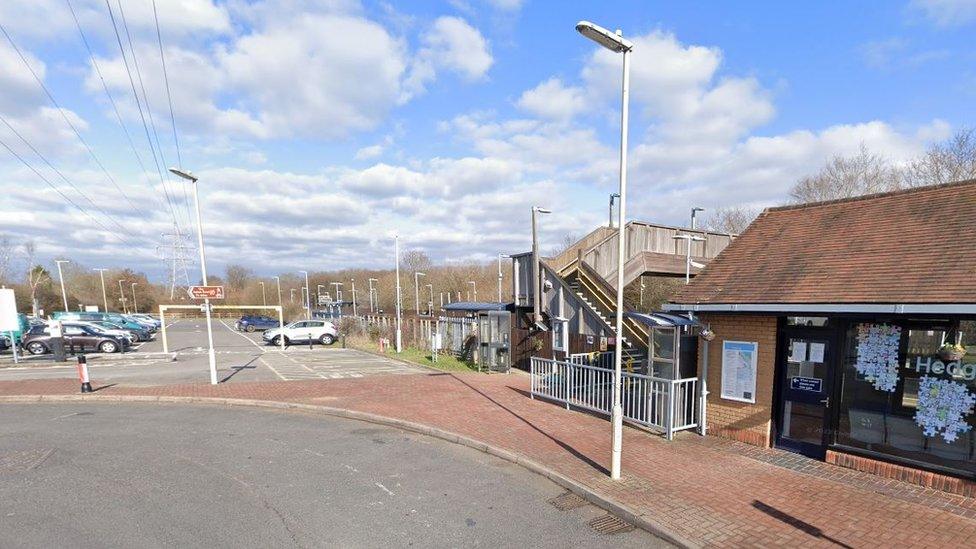
The landslip is believed to have happened near the rail line at Hedge End
A landslip has caused delays and alterations to rail services in Hampshire.
South Western Railway (SWR) had run rail replacement services following the incident at Hedge End but said there "should be no further delays".
Altered services ran between London Waterloo to Portsmouth Harbour via Eastleigh. Trains were also not stopping in Botley or Hedge End.
National Rail said the landslip was reported at 19:15 BST, external on Wednesday.
Allow X content?
This article contains content provided by X. We ask for your permission before anything is loaded, as they may be using cookies and other technologies. You may want to read X’s cookie policy, external and privacy policy, external before accepting. To view this content choose ‘accept and continue’.
Buses were available to shuttle passengers between Eastleigh and Fareham, calling at Hedge End and Botley.
A SWR spokesperson said commuters who experienced more than 15 minutes of delays may be entitled to compensation. , external
Southern Rail services in parts of Hampshire have also been "heavily impacted" after a major electricity supply failure.
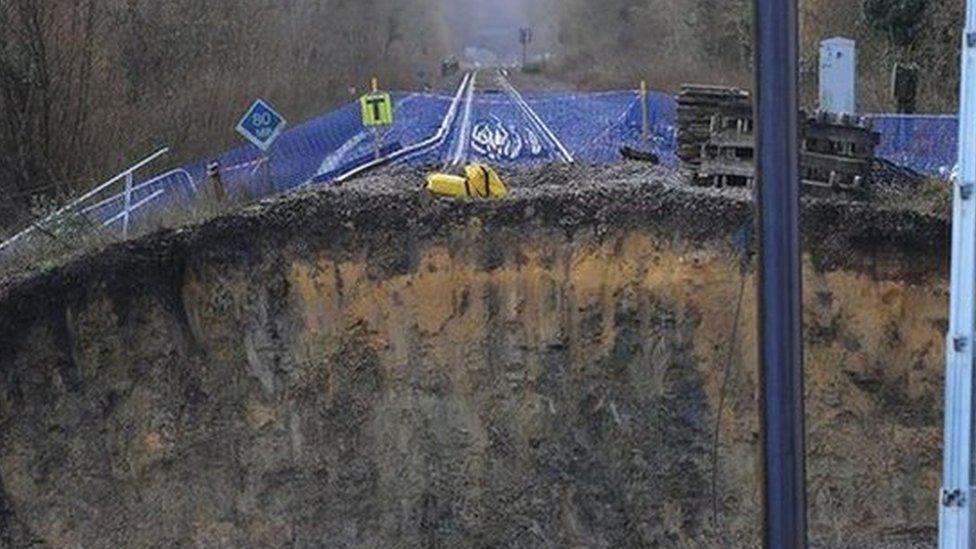
Hedge End experienced one of its biggest landslips in 2014, which closed the line for months
BBC South Transport Correspondent Paul Clifton said as far as landslips go, this was "not a big one" but still "wrecked the morning commute".
He explained Hedge End had a big landslip in 2014, which closed the line for months.
Meanwhile, other parts of the line have experienced issues too, he said Network Rail spent more than £2m on work to prevent landslips in 2022 by the Fareham tunnel entrance, removing thousands of tonnes of loose material.
Then in January this year there was another landslip at the site, following heavy rain, and the line was closed for a week to stabilise the side of a cutting.
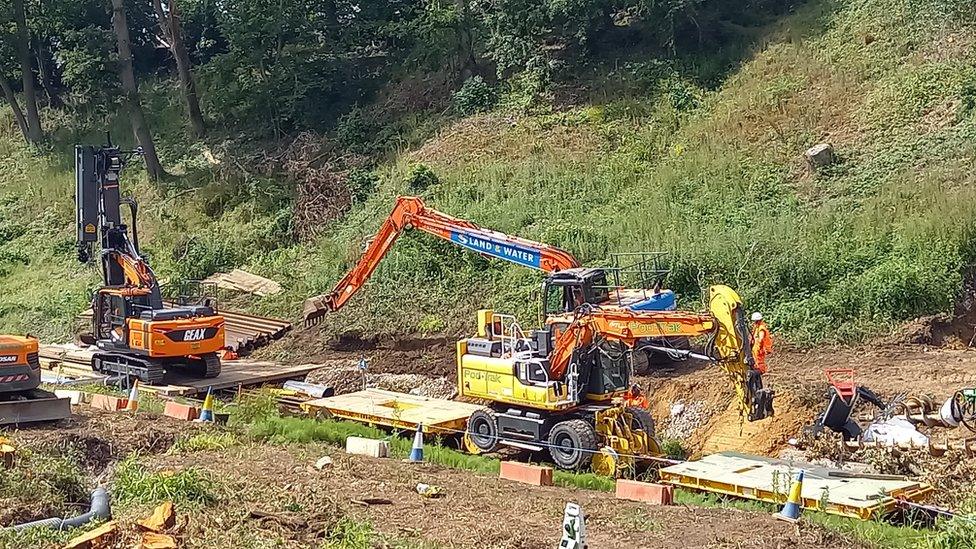
Work was carried out in 2022 by the Fareham tunnel entrance to try and prevent landslips
"Soil nails which are 25m (82ft) long were drilled into the soft slope and reinforced with concrete to stabilise the bank," the BBC correspondent said.
"This line has always been notorious for subsidence and flooding. Built by Victorian engineers, with banks far steeper than would be acceptable today, through very weak clay.
"In fact, there have been landslips on the route right back to when it was first constructed. They first closed the line only four days after it opened in 1841."

Follow BBC South on Facebook, external, X, external, or Instagram, external. Send your story ideas to south.newsonline@bbc.co.uk or via WhatsApp on 0808 100 2240, external.
- Published30 October 2023
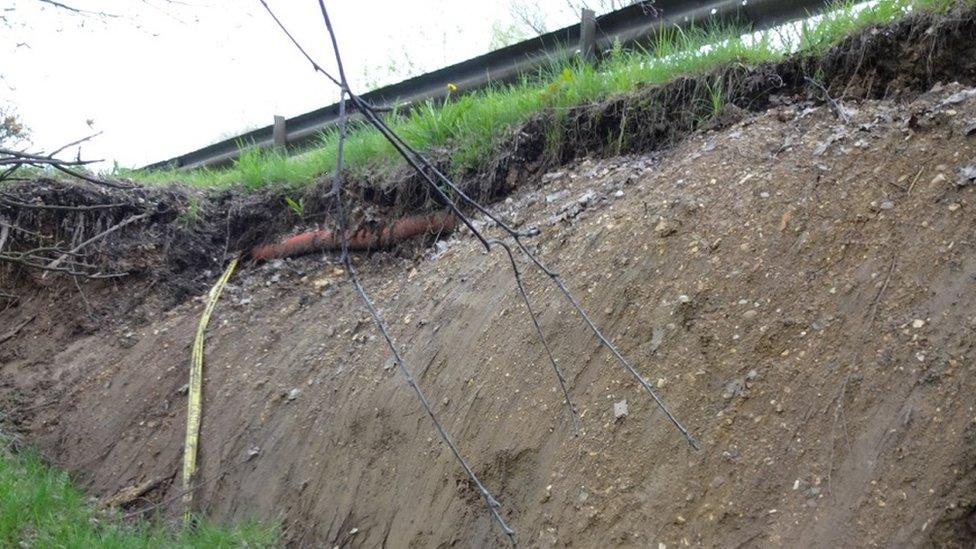
- Published27 June 2022
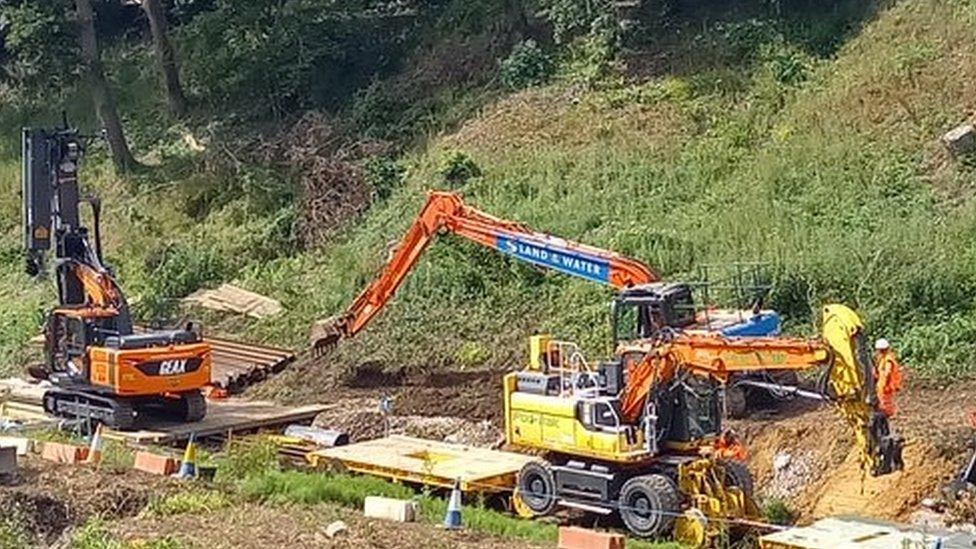
- Published27 February 2014
